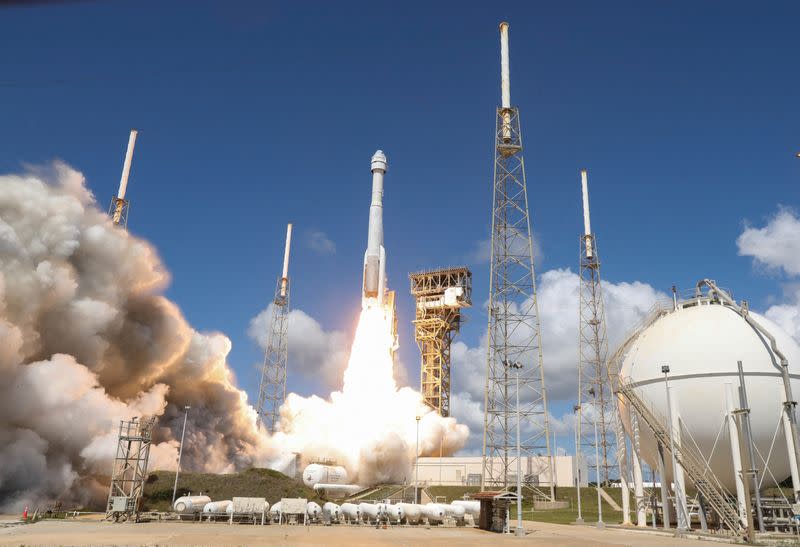Boeing Starliner's return to Earth pushed to June 26

- Oops!Something went wrong.Please try again later.
WASHINGTON (Reuters) -Boeing Starliner's return to Earth from the International Space Station with its first crew of astronauts has been pushed back to June 26, a NASA official said on Tuesday.
NASA astronauts Butch Wilmore and Suni Williams were launched aboard Starliner June 5 and arrived at the ISS following a 24-hour flight in which the spacecraft encountered four helium leaks and five failures of its 28 maneuvering thrusters.
Starliner's first flight with astronauts is a crucial last test in a much-delayed and over-budget program before NASA can certify the spacecraft for routine astronaut missions and add a second U.S. crew vehicle to its fleet, alongside SpaceX's Crew Dragon.
The new delay of the return of Starliner is intended "to give our team a little bit more time to look at the data, do some analysis and make sure we're really ready to come home," Steve Stich, NASA's commercial crew program manager, said during a news conference.
NASA is targeting a departure no earlier than June 26, leaving open an opportunity for further extensions of time at the ISS. Starliner, while designed for future six-month missions, can stay docked to the ISS for a maximum of 45 days during its current mission.
The return to Earth is expected to last about six hours and target a location in the desert of Utah, New Mexico or other backup locations, depending on local weather conditions.
The latest in-flight problems follow years of other challenges Boeing has faced with Starliner, including a 2019 uncrewed test failure where dozens of software glitches, design problems and management issues nixed its ability to dock to the ISS. A 2022 repeat uncrewed test had a successful docking.
(Reporting by Joey Roulette; Editing by David Gregorio and Chris Reese)

